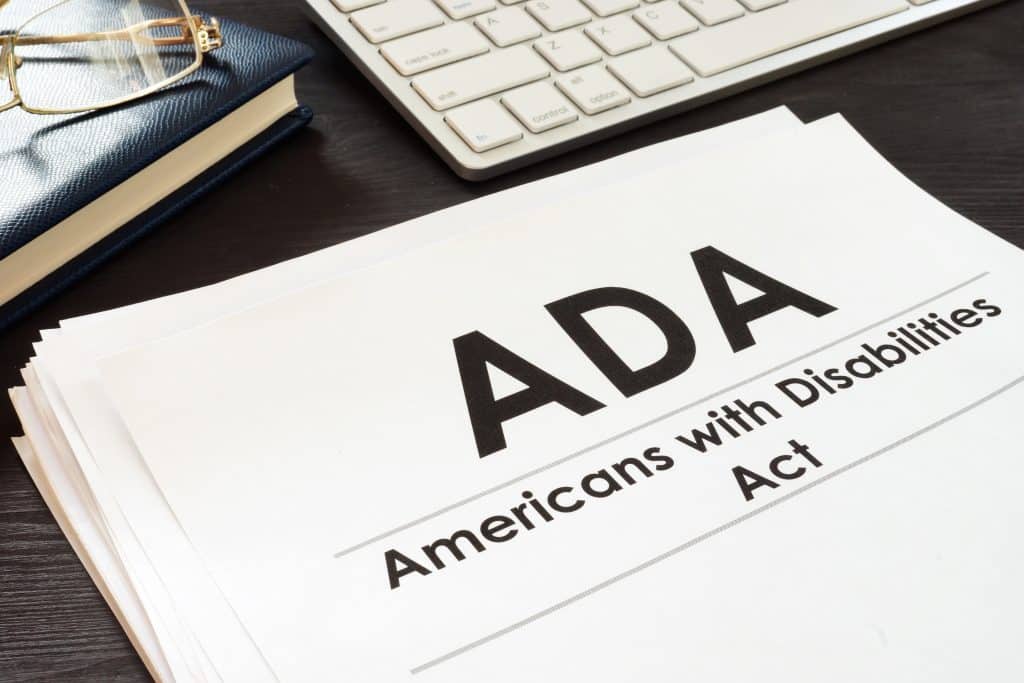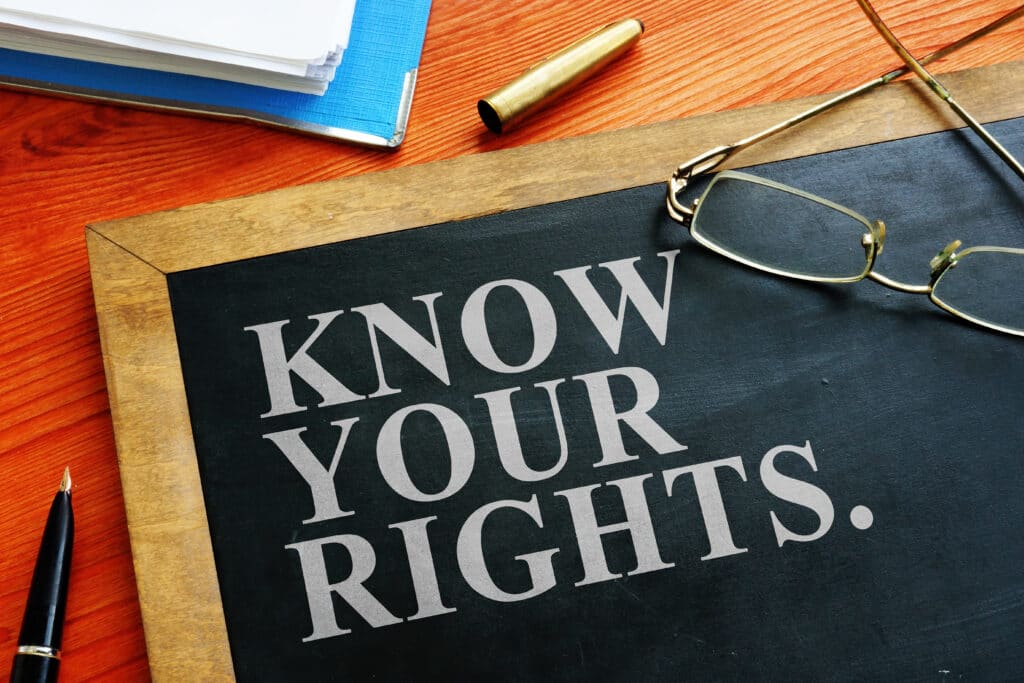At Emery | Reddy, PLLC we understand that navigating the complexities of employment and labor law can be challenging. Our goal is to provide you with clear, comprehensive answers to the most common questions related to workplace rights, legal protections, and employment disputes. Whether you’re an employee seeking to understand your rights or an employer looking for guidance on compliance, our resource center is designed to offer valuable insights and practical advice to help you make informed decisions. Explore our FAQ to get the answers you need.
Can My Employer Pay Me Less Than Minimum Wage?
The 2025 statewide minimum wage for Washington workers aged 16 and older is $16.66 per hour, with some exceptions:
14- and 15-year-olds: Washington state minimum wage for this age range will be $14.16 an hour.
Seattle workers:
- $20.76 an hour
- Restaurant workers’ wages will increase by over $3 per hour, the biggest hike since Seattle adopted a $15 an hour minimum wage a decade ago.
SeaTac hospitality and transportation employees: Hotel and transportation employees within the city limits of SeaTac earn $20.17 an hour.
Tukwila workers:
- $20.10 for midsized employers
- $21.10 for large employers
Renton workers:
- $20.90 for employers with 500+ full-time employees worldwide
- $18.90 – $19.90 for employers with either 15 – 500 employees worldwide OR more than $2 million annual gross revenue
Burien workers:
- $19.66 for employers with 500+ full-time employees in King County
- $18.66 for employers with 21 – 499 full-time employees in King County
Bellingham workers:
- $17.66 from January 1 until April 30, 2025
- $18.66 from May 1 until December 31, 2025
Computer professionals: Exempt computer programmers and other computer professionals earn $58.31 per hour.
Do I Qualify for Overtime Wages?
All non-exempt hourly workers in Washington state are entitled to overtime pay at 1.5x their wage for every hour worked over 40 hours in a work week. The law also includes overtime pay for agricultural workers who clock over 55 hours a week.
Am I Required to Sign a Non-Compete?
No. In fact, if you signed a non-compete contract after January 1, 2020 you may be entitled to compensation. The Washington State Non-Compete Law states that W-2 employees who earned less than $100,000 per year and independent contractors who made under $250,000 a year in 2020 are not required to sign a non-compete. In 2021, the Washington State Department of Labor and Industries (L&I) increased the earnings thresholds to $101,390 for employees and $253,475 for contractors.
What Is an At-Will Employment State?
Washington state is an at-will employment state. At-will employment means that employers do not need to establish cause or give notice before firing an employee. That being said, it is against the law for an employer to fire or retaliate against an employee for discussing or filing a complaint about a violation of their protected rights.
What Is a Class Action Law Suit?
A class action lawsuit is a civil lawsuit brought on behalf of a group of people or business entities who have suffered common injuries as a result of the defendant’s conduct with at least one individual or entity acting as a representative of that group. One of the major benefits of participating in a class action lawsuit is that each plaintiff gets a fair distribution of the damages. When there are multiple lawsuits, the first few plaintiffs to win may get the majority of assets of the defendant leaving little to no money for those who win their cases later.
Was I Wrongfully Terminated?
Despite the fact that Washington state is an at-will employment state, there are a wide number of statutory and common law circumstances where an employer may be liable for terminating an employee. For example, a Washington state employer cannot terminate an employee for taking actions that follow public policy, such as whistleblowing to alert the public or regulatory agencies of misconduct within the company. The Equal Employment and Opportunity Commission (EEOC) enforces federal laws that protect you against harassment or discrimination because of your race, color, religion, sex (including pregnancy, gender identity, and sexual orientation), national origin, age (40 and above), disability, or genetic information, or from retaliating against that worker if they file a complaint about one of those prohibited practices.
Is My Employer Required to Accommodate My Disability?
If you request a reasonable accommodation, your employer must work with you to come up with a solution that allows you to continue working. However few employers know the law in this area, and many others refuse to follow it.
If your accommodation request has been denied or your employer took adverse action against you following that request, call us today to speak with an experienced Intake Specialist to learn about how Emery | Reddy may be able to help you with your claim. We have a long track record of bringing successful lawsuits against employers for ADA violations. No fee unless we recover for you.

What Is the Difference Between an Employee and an Independent Contractor?
Employees are workers who perform services for an employer under the direction and control of the employer. The employer has the right to direct and control the work performed by the employee, including how the work is done as well as when and where it is done.
Independent contractors are workers who perform services for a particular business or organization but who are not employees of those organizations. Independent contractors are typically hired to complete specific tasks or projects, and they are not under the official direction and control of the business or organization hiring them.
What Is Seattle Paid Sick and Safe Time (PSST)?
Seattle Paid Sick and Safe Time (PSST) is a law that requires employers to provide at least one hour of paid sick leave for every 40 hours worked as an employee. An employee is entitled to use accrued paid sick leave beginning on the 90th calendar day after the commencement of employment. Paid leave can be used for medical reasons, domestic violence and assault situations, and when a family member’s school or place of care is closed by order of a public official. You do not need to provide a doctor’s note. Workers earn one hour of sick and safe time for every 40 hours worked for a total of 6.5 days per year.
What Is the Family and Medical Leave Act (FMLA)?
The Family and Medical Leave Act (FMLA) entitles eligible employees of covered employers to take unpaid, job-protected leave for specified family and medical reasons with continuation of group health insurance coverage under the same terms and conditions as if the employee had not taken leave.
What Is the Americans with Disabilities Act (ADA)?
The Americans with Disabilities Act (ADA) protects people with disabilities from discrimination. If you request a reasonable accommodation, your employer must work with you to come up with a solution that allows you to continue working. However, few employers know the law in this area, and many others refuse to follow it. If your accommodation request has been denied or your employer has taken adverse action against you following that request, call us today so we can help. We have a long track record of bringing successful lawsuits against employers for ADA violations. No fee unless we recover for you.
What Is the Silenced No More Act?
In 2022, Washington Governor Jay Inslee signed into law the Silenced No More Act (HB1795), which limits the use of workplace non-disclosure and non-disparagement agreements, commonly known as NDAs. Under the new law, employees and independent contractors throughout the state can no longer be forced to stay quiet about certain unlawful workplace mistreatment.
What Is the Occupational Safety and Health Administration (OSHA)?
With the Occupational Safety and Health Act of 1970, Congress created the Occupational Safety and Health Administration (OSHA) to ensure safe and healthful working conditions for workers by setting and enforcing standards and by providing training, outreach, education, and assistance. To learn more, visit OSHA online.
What If My Personal Information Is Stolen Due to a Data Breach?
Businesses have an obligation to their customers to protect their data and inform them if something happens to it. Most companies will usually offer privacy rights violation and data breach victims free credit or identity monitoring for a year or two. In some cases, this is enough. But if a business loses customer data in a cyberattack and further investigation reveals it was because of poor cybersecurity systems, it could potentially be sued in a class action lawsuit.
What If I Am Having Union Disputes?
Many union contracts greatly benefit workers; however, unions sometimes fail to enforce the Collective Bargaining Agreement on behalf of their members or may discriminate against individual members. If you are experiencing union issues or are involved in a union-related dispute, you may also wish to contact the National Labor Relations Board. This federal agency administers the National Labor Relations Act, the principle law governing relations between private-sector employers and unions.
What Is Salary Transparency?
Salary transparency means that employers must post clear salary information on all Washington stare job applications under the updated Washington Equal Pay and Opportunities Act (EPOA). The pay transparency law applies to any employer that does business in Washington with 15+ employees with at least one of those employees being Washington-based. Any employer breaking the law could entitle you to $5,000 in damages, as well as attorney’s fees and employer fines.

Workers’ Rights in Washington State
Washington State employees are protected by several state and federal laws and are provided certain workers’ rights. The Equal Employment Opportunity Commission (EEOC) is one of the federal bodies that make and regulate the laws that protect workers’ rights. Some of those protections for workers include the following:
- Receiving equal pay for equal work
- Receiving reasonable accommodations for religious beliefs, disability, or pregnancy, childbirth, or related medical conditions
- Not being sexually harassed or discriminated against for your race, color, religion, sex (including pregnancy, gender identity, and sexual orientation), national origin, age (40 to 70), disability, or genetic information
- Reporting discrimination or other labor violations without fear of retaliation
Washington State Department of Labor & Industries (L&I) protects workers further by ensuring that employees:
- Work in a safe and healthy environment,
- Receive meal and rest breaks,
- Be paid at least minimum wage for all hours worked,
- Receive overtime pay for hours worked over 40 in a workweek,
- Accrue, and be allowed to use, paid sick leave hours,
- Be paid tips and service charges, and
- Be able to discuss potential violations of these rights with your employer.
What to Do When Your Rights Are Violated
It can be scary, confusing, and upsetting when you’re facing harassment or discrimination at work, have been wrongfully terminated, or have had your paycheck shorted with no explanation. Here are some tips for how to handle workplace employment violations.
Compile documentation: A case requires evidence, so it is important to document everything in writing, including notes taken by hand, and to keep copies at home (not at work) in a digital format along with a hard copy. State the facts of what happened, including:
- Who was involved and nearby,
- Where the incident took place,
- The time and date, and
- Witness statements.
A note about recording: Washington is a two-party consent state, which means you cannot record another person without their permission.
Read your employee handbook: If your employer has an employee manual or handbook, it’s important to read through it and keep a copy of it at home. Not only do employers outline their policies and procedures in such documentation, but many will also have a process for dealing with workplace issues that are detailed within, like how to report it and to whom. Reading your employee handbook can answer a lot of questions for you and leave you better prepared if you end up needing to consult an Employment and Labor Law attorney.
Contact Human Resources: Most companies require their employees to report workplace issues to human resources as a first step. Besides hiring new employees and managing benefits, human resources representatives are trained to help resolve problems at work, from disagreements with co-workers to more serious concerns like harassment or safety violations. Their loyalty lies with the company, however, and if they aren’t taking your claim seriously, it may be time to contact an Employment Law and Labor Law attorney.
Visit the EEOC and L&I websites: The EEOC lists the federal laws and regulations that employers must follow. Additionally, while most people think of L&I as the Washington workers’ compensation organization, it also oversees Washington state laws and regulations regarding workers’ rights. Reviewing both websites can further educate you on your rights and help you decide if you need to consult an Employment Law and Labor Law attorney.
Do I Need to Hire an Employment and Labor Law Attorney?
If you have tried to work things out with your employer and nothing has been done, then it’s time to consult with an experienced Seattle Employment and Labor Law attorney. Employment and Labor Law is complicated and can be overwhelming for anyone not familiar with it. Trying to hold a company accountable for bad business practices requires a skilled attorney to navigate the different laws and tactics an employer may use.
Emery | Reddy has over eight decades of experience in Employment and Labor Law and an unmatched record of helping Washington state workers get the justice they deserve in labor violations. Call for a Free Case Review with an experienced Intake Specialist and learn how we may able to help. No fee unless we recover for you.
Are you Injured?
Contact Us Today
Contact Us for a FREE Case Review.
No Fee Unless We Recover for You.
Want More Information?
As a Washington state employee, you are entitled to several protections and benefits under state and federal laws.
A document review is a comprehensive consultation and analysis of your document’s legal language, context, and impact on your worker’s rights as an employee of Washington state.
Workers’ compensation is a form of insurance that provides wage replacement and medical benefits to injured workers. Learn more about the claims process, benefits and awards, and IMEs.
WE FIGHT FOR YOU
Meet the Team
The Seattle Employment and Labor Law Attorneys at Emery | Reddy, PLLC are passionate about helping workers with L&I claims and Employment and Labor Law issues. We help workers.® It’s our motto and what drives us every day.
We know how L&I and big companies think, and we understand the tactics they use. Our Seattle Employment and Labor Law Attorneys use that knowledge coupled with over eight decades of experience to help our clients get access to the benefits to which they are legally entitled and hold employers accountable when they break the law.
If you’re struggling with a Washington state L&I claim, or legal issue at work, call us for a Free Case Review with an experienced Intake Specialist to learn more about how Emery | Reddy may be able to help. No fee unless we recover for you.
“When I required legal counsel for an employment issue I was having, Emery | Reddy was one of three firms I spoke with and the clear choice for me. Should I be in the unfortunate position to need legal guidance again, I won't hesitate to contact Emery | Reddy.”
—Alyson F.
Receive a
FREE Case Review







